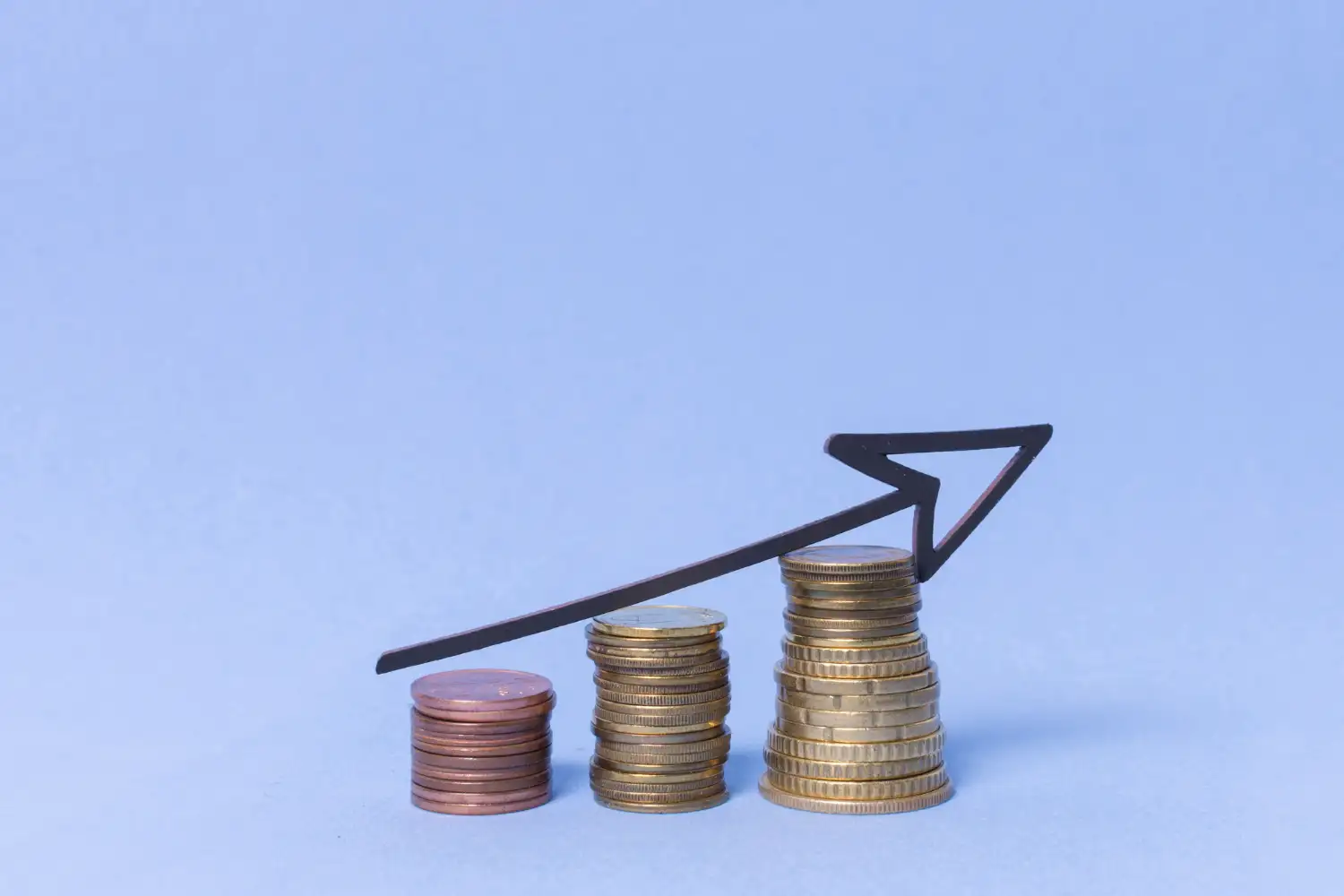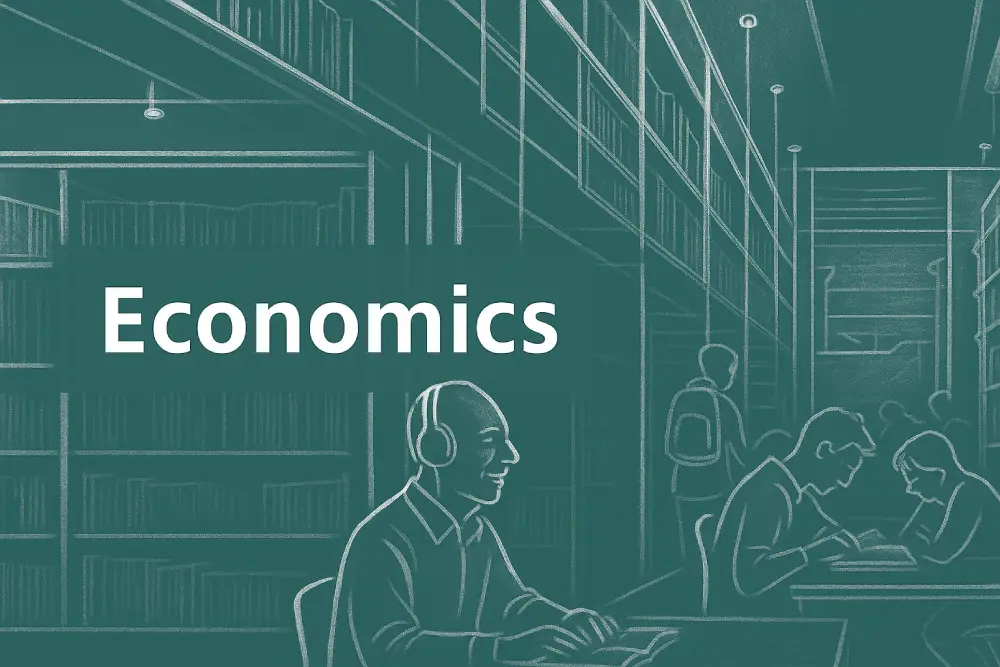In the modern state, the economy plays a vital role in projecting the worth of a government or a private entity. The effectiveness of an economic system and its proper functionality of markets are often the most highlighted subjects that help understand the economics of a state from a multidimensional perspective. The economics courses taught at universities pay substantial attention to developing the fundamental blocks of the subject and other related areas of consideration.
Economics: Definition & Types
Defining economics in simple terms can be challenging. Broadly, it is the scientific study of how supply and demand operates—examining the processes of production, distribution, and consumption, whether under government institutions or private organisations. To meet the needs of a population, both governmental and non-governmental entities manage the collection, production, and distribution of limited global resources, giving rise to various economic systems. These systems differ based on who controls and manages the resources.
To understand how these economic systems function, it is essential to first explore the two main branches of economics: macroeconomics and microeconomics.
Macroeconomics focuses on the overall growth and development of an economy. It takes a broad view of the entire economic system, studying its behavior and performance. Key areas include economic cycles, foreign trade, unemployment, government fiscal and monetary policies, and interest rates. Economists use macroeconomic models to design effective economic strategies and public policies.
Microeconomics examines the behavior of individuals and business entities in making decisions about resource allocation. It analyzes how households, consumers, and firms respond to changing prices, and how demand is shaped at different price levels.
Economic systems across the world are often shaped by the principles of one or both of these branches. Courses in economics explore macroeconomics and microeconomics in depth, along with a wide range of interconnected topics.
Different Types of Economic Systems
The economy is a man-made system put in place to achieve certain goals. Individuals, organisations, or governments usually establish economic systems to allocate resources, services, and commodities among the family, enterprise, or the state. The different types of economic systems are designed to understand how the systems differ in their functional structure.
Capitalist Economy: In a capitalist economy, the government or state actors do not have a policy of direct intervention, allowing the state subjects or consumers to acquire whatever resources they need based on the power of purchase alone. Under this type of economy, individuals are given the right to own private property, choose any occupation or start an enterprise, compete with a profit motive, and build efficient market economies.
Socialist Economy: For a socialist economy, a centralised government body is put in charge of managing resources, products, and services, in a way that ensures a distribution based on equity. In this type of economic system, the centralised government has the power to decide what products to be manufactured, and how it is to be distributed in accordance with social needs. It is a system that promotes social and collective well-being.
Mixed Economy: By combining the very best aspects of the socialist and capitalist economy, the idea of a mixed economy emerges. It is often stated as a dual economic system that relies on a complex mechanism that can often be hard to define. Nevertheless, in the mixed economy, private and public sectors can both thrive, with the government investing in economic planning.
When studying economics courses, these three economic systems are highlighted with examples from the modern world, so students can grasp the concept from a holistic and historical perspective.
Explore Jindal School of Government and Public Policy
Government and Public Policy Courses

The Difference Between Finance & Economics
Finance and economics may often be confused as synonyms, but as a matter of fact, they are two distinct disciplines that are heavily interrelated. Naturally, it is important to discuss financial matters when discussing economics, and vice versa. So, let us first establish the fundamental differences between economics and finance.
Economics vs Finance: Key Differences
| Economics | Finance | |
|---|---|---|
| 1. | As a branch of social sciences, economics is concerned with the bigger picture which includes resource allocation and understanding human responses based on the same. | Finance is an offshoot of economics that focuses on money management using various tools and techniques. |
| 2. | Economics has a history of relying on theoretical explanations for different economic elements. | Finance is more practical in its approach and action. |
| 3. | The study of Economics focuses on two specific branches: microeconomics and macroeconomics. | The study of Finance is divided into three categories: Public Finance, Private Finance, and Corporate Finance. |
Despite the differences, the interrelation between economics and finance allows an informed approach for the market dwellers and for the overall society. For example, both disciplines are used for evaluating the risk and return ratio for companies and investors alike. Professionals from both fields are also required in similar places like governments, financial markets, and corporations.
Highlights From the Economics Course Content
The economics courses after 12th introduce students to the world of economics by discussing a series of related topics, theories, and practical themes. Here is a glimpse into the 4-year Honours course content for economics.
- Principles of Economics
- Introduction to Mathematics
- Introduction to Statistics
- Influential Ideas in the Evolution of Economics
- Introduction to Microeconomics
- Computational Techniques
- Mathematical Methods of Economics
- Applied Statistics Analysis
- Intermediate Microeconomics
- Introduction to Macroeconomics
- Politics of Development
- Data Analysis/ Survey Design
- Public Economics
- Intermediate Macroeconomics
- Introduction to Game Theory
- Introduction to Econometrics
- Applied Economic Analysis
- Development Economics
- International Trade
- Equity & Fairness
- Indian Economy
- Environmental Studies
The economics courses presented by universities follow more or less the same curriculum with additional inclusion of electives, research papers, dissertations, discussions and debates, international exchange programmes and internships.
Career in Economics Courses after 12th
Economics offers a wide range of career scopes to students, especially to those starting the honours course just after their class 12 board examinations. Here are some of the job positions you can opt for after graduating with an Economics degree.
- Data Analyst: Use graphs and tools to manage and interpret complex data.
- Statistician: Apply statistical knowledge to conduct surveys and audits.
- Auditor: Check financial records for accuracy and compliance.
- Stockbroker: Help clients invest by connecting them to the right financial opportunities.
Career Opportunities in Economics
| Job Role | Key Responsibilities | Skills Required | Typical Employers |
|---|---|---|---|
| Economist | Analysing economic trends, preparing forecasts, advising on policy | Analytical thinking, data interpretation | Government agencies, research institutions |
| Data Analyst | Collecting and processing large data sets to help decision-making | Excel, Python, R, problem-solving | Corporates, banks, consultancy firms |
| Statistician | Designing surveys, analysing results using statistical methods | Statistical software (e.g., SPSS, Stata), logic | Government, health organisations, research firms |
| Policy Analyst | Assessing and developing policies based on economic impact | Communication, critical thinking, research skills | Think tanks, NGOs, governmental departments |
| Stockbroker | Buying/selling securities on behalf of clients, offering investment advice | Financial literacy, negotiation, fast decision-making | Brokerage firms, banks, investment firms |
| Auditor | Reviewing financial statements, ensuring compliance and accuracy | Attention to detail, accounting knowledge | Accounting firms, corporates, public sector |
| Banking Officer | Managing operations in banks, customer service, and loan processing | Finance knowledge, communication skills | Public and private sector banks |
| Financial Planner | Advising individuals or companies on financial goals and strategies | Planning, forecasting, interpersonal skills | Financial advisory firms, self-employed |
The economic honours degree opens various other employment opportunities in diverse sectors such as international business, law, healthcare, and many more. Higher education is also a lucrative option for students wishing to pursue the subject further and expand their portfolio.





